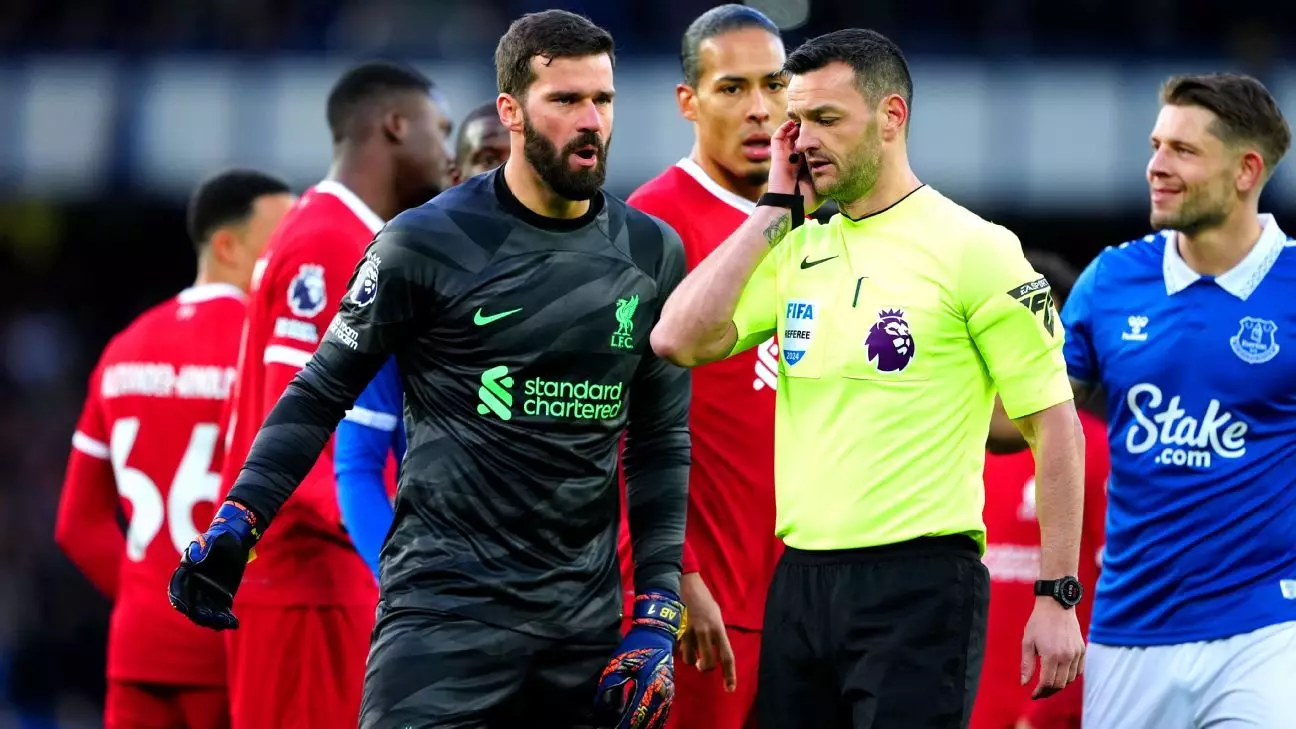In a pivotal moment in September 2023 at a match between Liverpool and Tottenham Hotspur, referee Simon Hooper inaccurately commended his team on their VAR review process, despite a crucial error that took place. The incident shed light on the persistent issue with the video assistant referee in English football, tarnishing the reputation of officials and casting a shadow of doubt over the entire system. The ramifications of that incident continue to reverberate through social media discussions and have become synonymous with criticizing English referees.
The Chief Refereeing Officer, Howard Webb, faces an uphill battle in trying to alter the negative perceptions surrounding VAR among fans, players, and managers. Webb acknowledges that the fundamental issue lies in the fact that people often disagree with the final outcomes of VAR decisions, leading to widespread discontent. Despite repeated assurances and attempts to clarify the purpose of VAR, the trust in the system remains severely eroded. The Premier League’s efforts to shift the narrative away from constant referee scrutiny and refocus on football have so far been met with limited success.
The Premier League’s approach to addressing concerns around VAR include providing more detailed live updates on VAR reviews during matchdays and revisiting the concept of “clear and obvious” errors in decision-making. The introduction of the “referee’s call” system aims to emphasize on-field decisions over VAR interventions, yet the overall impact of these changes remains unclear. The league emphasizes the high bar for decision-making quality while acknowledging the need to manage people’s expectations regarding VAR’s capabilities.
One of the longstanding challenges with VAR in the Premier League has been the efficiency of reviews and the time taken to make decisions. Contrasted with the faster and more effective implementation of VAR at Euro 2024, where semiautomated offside rules were utilized, the Premier League’s VAR process has been under scrutiny for delays and perceived inefficiencies. The push for quicker reviews and more decisive actions is deemed essential to improve public perception and restore confidence in the officiating standards.
Widespread discontent and opposition to VAR have emerged in various footballing circles, with fan-owned clubs in Scandinavia rejecting the technology’s introduction and ongoing debates in Norway on its future. The potential for leagues to abandon VAR entirely looms large, signaling a potential shift in the way officiating is approached in modern football. The lack of fan consultation on crucial decisions related to VAR highlights the need for greater transparency and engagement with stakeholders across the sport.
Webb’s strategic vision to elevate English officials to the same standard as their counterparts in other top leagues remains a key focus for revitalizing the perception of refereeing in English football. The need for greater representation at UEFA’s elite level and enhanced opportunities for advancement within the refereeing ranks underscores the commitment to raising standards and adapting to changing dynamics in the sport. As the new season unfolds, the challenge of reconciling fan expectations, technological advancements, and refereeing performance persists, leaving many uncertain about the future of VAR in English football.

